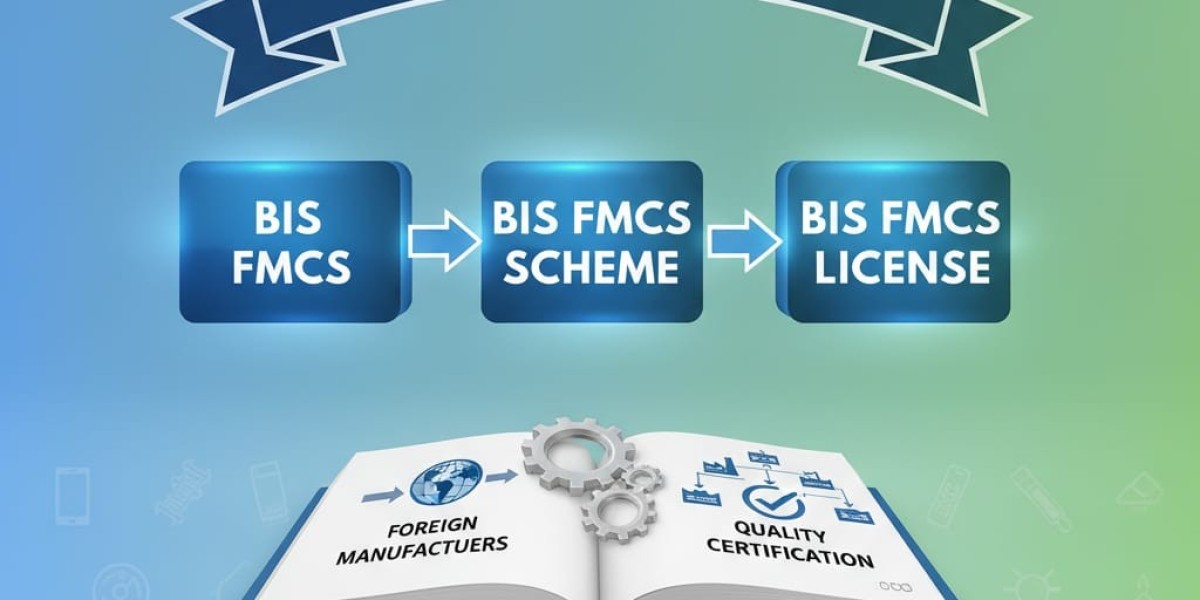Introduction
India’s growing consumer market has opened vast opportunities for global manufacturers across electronics, appliances, industrial products, steel items, and more. However, entering the Indian market requires strict compliance with regulatory standards to ensure product quality and safety. One of the most important regulatory approvals for overseas manufacturers is BIS FMCS—a certification mechanism that verifies product conformity before it can be sold in India.
This blog provides a complete and easy-to-understand guide on BIS FMCS Certification and BIS Registration for Foreign Manufacturer, explaining requirements, benefits, process steps, and essential compliance tips.
What is BIS FMCS?
The Foreign Manufacturers Certification Scheme (FMCS) is a mandatory certification program implemented by the Bureau of Indian Standards (BIS). It is specifically designed for foreign manufacturers who produce goods outside India but wish to sell them in the Indian market.
Under BIS FMCS, foreign manufacturers must obtain approval for all products that fall under mandatory Indian Standards (IS). Once certified, they can apply the BIS Standard Mark on their products, proving their compliance with Indian safety and quality norms.
Which Products Need BIS FMCS Certification?
Hundreds of products across categories require FMCS approval. Some common examples include:
Steel products
Electrical appliances
Batteries
Cement
Chemical products
Pressure cookers
Food containers
Industrial valves
Automotive components
Rubber and plastic materials
If a product is listed under mandatory ISI standards, a foreign manufacturer must obtain BIS FMCS Certification before shipping it to India.
Why BIS FMCS Certification is Important
1. Mandatory for Indian Market Entry
No foreign manufacturer can sell or distribute certain regulated products in India without BIS approval.
2. Symbol of Trust and Quality
Products with the BIS Standard Mark gain consumer trust and better acceptance in the Indian market.
3. Smooth Import and Customs Clearance
Certified products move through customs quickly, reducing delays and preventing legal issues.
4. Competitive Advantage
Businesses that comply with BIS FMCS are preferred by distributors, wholesalers, and industrial buyers, improving brand reliability.
Understanding BIS Registration for Foreign Manufacturer
BIS Registration for Foreign Manufacturer is required when the product is part of the FMCS category. The manufacturer must appoint an Authorized Indian Representative (AIR) who will coordinate with BIS on all matters.
Key requirements include:
Legal permission to manufacture
ISO certificate
Quality control system details
Factory layout and machinery list
Raw material test reports
In-house testing equipment
Safety and quality testing procedures
The foreign manufacturer must follow BIS guidelines without deviation, and any change in manufacturing location, machinery, or process must be communicated to BIS.
Detailed BIS FMCS Certification Process
The BIS FMCS Certification process involves multiple quality checks to ensure that the products meet applicable Indian Standards. The step-by-step process is as follows:
Step 1: Identify Applicable Indian Standard (IS)
The manufacturer must determine the exact IS standard under which the product falls.
Step 2: Documentation Preparation
All required documents are compiled, including factory details, quality control procedures, product specifications, machinery lists, calibration records, and test equipment availability.
Step 3: Product Testing
Products must undergo testing in BIS-recognized laboratories. The lab issues a detailed test report stating whether the product meets required specifications.
Step 4: Application Submission
The foreign manufacturer submits the application along with test reports, documents, fees, and details of the Authorized Indian Representative (AIR).
Step 5: Factory Inspection
A BIS officer visits the foreign manufacturing unit to verify:
Production capability
Quality management systems
Raw material handling
In-house testing equipment
Consistency in manufacturing
Product safety checks
This step ensures that the manufacturer can continuously produce compliant products.
Step 6: Evaluation and Approval
BIS evaluates the inspection report and test results. If everything meets Indian Standards, the BIS license is issued under the FMCS scheme.
Step 7: Grant of BIS FMCS Certification
The manufacturer receives permission to use the ISI Standard Mark on approved products. The certificate is valid for a specific period and must be renewed on time.
BIS FMCS Certification Timeline
Typically, the FMCS approval process takes 3 to 6 months, depending on:
Product category
Factory location
Testing complexity
Availability of documents
BIS inspection scheduling
Proper preparation can reduce delays significantly.
Common Challenges in BIS FMCS
Foreign manufacturers often face challenges such as:
Lack of clarity in technical standards
Document verification issues
Language and communication barriers
Inspection scheduling delays
Incorrect product classification
Working with experienced compliance professionals helps overcome these obstacles smoothly.
Benefits of Getting BIS FMCS Certification
Builds trust among Indian buyers
Ensures product quality and safety
Easy acceptance by distributors and retailers
Helps avoid penalties or product rejections
Enhances international brand value
Enables wider market reach in India
Conclusion
Entering the Indian market requires strict adherence to BIS guidelines, especially for products under mandatory certification. The BIS FMCS scheme ensures that foreign-manufactured goods meet Indian quality and safety standards before being sold in the country. Understanding the BIS Registration for Foreign Manufacturer process and completing the BIS FMCS Certification steps correctly will ensure smooth compliance, faster approval, and seamless business operations in India.
For expert BIS FMCS support and regulatory compliance assistance, you can rely on sunconsultants.co.in.








